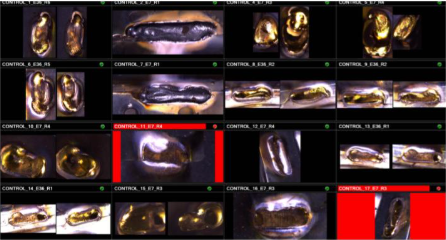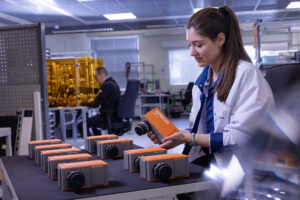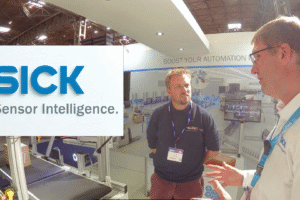With the news that the UK has dropped out of the top 10 manufacturing rankings for the first time, Sath Rao, Head of Global Manufacturing Strategy at Zebra Technologies, explains why this has happened, and what it could mean for the future of UK manufacturing.
“Make UK has suggested its own explanations about why the UK dropped out of the top ten. It’s possible there are other factors at work too, and it’s important to note that the rankings data is from 2022, so we won’t know for a couple of years what the UK’s ranking is as of today. Earlier in July this year Make UK and BDO analysis said the number of manufacturing jobs in the UK had dropped by 34,000 in the past year, but there are still 64,000 vacancies – representing around £6bn per annum in lost output. Jobs, vacancies, skills and the technologies needed to support manufacturing industries should be looking at in terms of recovery and putting UK manufacturing back in the top ten.”
What does this mean for the future of UK manufacturers?
“The 2022 ranking doesn’t tell us where we are now in 2024, and there’s hope for the future – for example, in March the S&P Global/CIPS UK manufacturing Purchasing Managers’ Index returned to growth for the first time in 20 months. Investment in workforce hiring, training, reskilling, and technologies to support workers and automate processes will be needed going forward, among other things.
“Zebra’s 2024 Manufacturing Vision Study, based on a global survey of C-suite executives and IT/OT decision-makers across manufacturing segments, showed that although manufacturers say digital transformation is a strategic priority, achieving a fully connected factory remains elusive. Eighty four percent of European manufacturing leaders (86% globally) agree they are struggling to keep up with the pace of technological innovation.
“Advanced European countries are grappling with productivity issues, and it is imperative that transformative technologies like Machine Vision and AI be made available to the connected frontline worker, helping drive worker engagement and empower decision entrepreneurism. Workers need all the tools to help drive manufacturing productivity and it is not about labour cost arbitrage but taking decisions in real-time that drive profit impacting outcomes.”
How can the UK claw its way back into the top 10?
“Mobile computing tools that help workers respond faster to supply-chain challenges, machine vision technologies that can help ameliorate quality issues, and RFID based advanced location services can help industry and countries gain competitive advantage. It is a global race and nothing but an Olympic resolve to empower the workforce is the need of the hour.
“One can hope that in a few years’ time we’ll look back at the data for 2024 and see the progress UK manufacturing made. The UK’s manufacturing industries, from automotive, to battery, packaging, food and beverage and others, need to look at things like visibility and connectedness of workers, assets, and inventory within the plant and across the supply chain, and how technology tools can support hiring, training and reskilling. We can also expect greater technology automation levels for repetitive workflows and where higher levels of accuracy, speed and compliance are needed, such as in visual inspection. Zebra’s study showed that 54% of manufacturers in Europe (61% globally) expect AI to drive growth by 2029, up from 37% (41% globally) in 2024. Manufacturers are shifting their growth strategies by integrating and augmenting workers with AI and other technologies to transform manufacturing and build a skilled workforce over the next five years.”
















